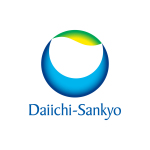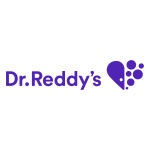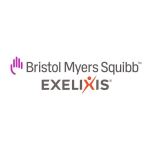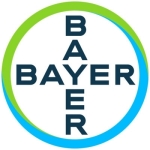Results for our CD19-targeted CAR T cell therapy lisocabtagene maraleucel (liso-cel) in patients with heavily pretreated mantle cell lymphoma and relapsed/refractory chronic lymphocytic leukemia
Data showcasing BCMA-targeted CAR T cell therapy idecabtagene vicleucel (ide-cel), including updated results from the Phase 1 CRB-401 study and analyses of health-related quality of life, safety and correlative endpoints from the pivotal KarMMa study in heavily pretreated patients with relapsed/refractory multiple myeloma
Four oral presentations featuring data from the Phase 3 QUAZAR® AML-001 study of Onureg® (azacitidine tablets) in patients with acute myeloid leukemia in first remission, including longitudinal assessment of measurable residual disease
First clinical data for triplet combination of iberdomide, a novel CELMoD® agent, with daratumumab or bortezomib and dexamethasone in patients with heavily pretreated relapsed/refractory multiple myeloma
PRINCETON, N.J.–(BUSINESS WIRE)–$BMY #AML—Bristol Myers Squibb (NYSE: BMY) today announced the presentation of research across its hematology portfolio at the 62nd American Society of Hematology (ASH) Annual Meeting and Exposition, which will take place virtually from December 5 to 8, 2020. Data from nearly 100 company-sponsored studies will be featured, reinforcing the depth and diversity of the company’s development program and commitment to discovering potential new options to treat patients with blood cancers and other serious hematologic diseases.
Key data being presented by Bristol Myers Squibb and its partners at the 62nd ASH Annual Meeting and Exposition include:
- Multiple analyses of CD19-targeted CAR T cell therapy liso-cel, highlighting studies of the treatment in additional hematologic malignancies, including results from the Phase 1 TRANSCEND NHL 001 study in patients with heavily pretreated, relapsed or refractory (R/R) mantle cell lymphoma and results from the Phase 1 TRANSCEND CLL 004 study in patients with R/R chronic lymphocytic leukemia. Moreover, a matching-adjusted indirect comparison of liso-cel vs. axicabtagene ciloleucel and tisagenlecleucel, and an analysis of outcomes in the outpatient setting will highlight new insights in treating R/R large B-cell lymphoma.
- Reinforcing the company’s commitment to patients with multiple myeloma, presentations evaluating BCMA-targeted CAR T cell therapies in collaboration with bluebird bio, including: an analysis for ide-cel from the pivotal KarMMA study evaluating quality of life outcomes in R/R multiple myeloma. Additional safety, patient subgroup and correlative analyses from the KarMMa study highlighting the impact of prior therapies and features associated with CAR T expansion. In addition, updated results from the Phase 1 CRB-401 trial evaluating safety and responses in heavily pretreated patients with longer follow-up will be reported. Finally, updated results from the Phase 1 CRB-402 study of early-stage CAR T cell therapy bb21217 will also be presented.
- The first efficacy and safety results from a triplet combination study including iberdomide, a cereblon E3 ligase modulator (CELMoD)® agent, with daratumumab or bortezomib and dexamethasone in patients with heavily pretreated R/R multiple myeloma.
- More than 40 abstracts highlighting Bristol Myers Squibb’s recent treatment advances for hard-to-treat myeloid diseases, with multiple quality of life analyses including data on reduced hospitalizations and associated estimated costs with Onureg® (azacitidine tablets) in patients with acute myeloid leukemia in first remission from the Phase 3 QUAZAR® AML-001 study. New health-related quality of life outcomes from the Phase 3 BELIEVE and MEDALIST studies of Reblozyl® (luspatercept-aamt), in beta thalassemia and lower-risk myelodysplastic syndromes, will also be presented.
“Our purpose continues to be translating groundbreaking research across many hard-to-treat diseases and the nearly 100 studies being presented at this meeting illustrate our continued focus, with new modalities and different targets in our pipeline supporting the next waves of innovation in hematology,” said Samit Hirawat, M.D., executive vice president, chief medical officer, global drug development, Bristol Myers Squibb. “This year’s ASH represents an opportunity to highlight new data supporting our recently approved therapies, as well as other important advances across our pipeline. As we mark one year in growing a combined organization, we look forward to ASH as an exchange that underscores our commitment to delivering potentially beneficial survival outcomes and quality of life improvements for patients.”
Summary of Presentations:
Selected Bristol Myers Squibb studies at the 62nd ASH Annual Meeting and Exposition include:
Acute Myeloid Leukemia
- Escalated Dosing Schedules of CC-486 are Effective and Well Tolerated for Patients Experiencing First Acute Myeloid Leukemia (AML) Relapse: Results from the Phase III QUAZAR AML-001 Maintenance TrialPresenter: H. DoehnerPresentation: #111Date/Time: Saturday, December 5, 9:30 am EST
- Health-related Quality of Life with CC-486 in Patients with Acute Myeloid Leukemia in First Remission Following Induction Chemotherapy: Results from the Phase III QUAZAR AML-001 Maintenance TrialPresenter: G. RobozPresentation: #214Date/Time: Saturday, December 5, 12:15 pm EST
- CC-486 Reduces Hospitalization and Associated Estimated Costs in Patients with Acute Myeloid Leukemia in First Remission After Intensive Chemotherapy: Results of the QUAZAR AML-001 Maintenance TrialPresenter: E. OliviaPresentation: #621Date/Time: Monday, December 7, 9:15 am EST
- CC-486 Prolongs Survival for Patients with Acute Myeloid Leukemia in Remission after Intensive Chemotherapy Independent of Presence of Measurable Residual Disease at Study Entry: Results from the QUAZAR-AML-001 Maintenance TrialPresenter: G. RobozPresentation: #692Date/Time: Monday, December 7, 2:30 pm EST
- CC-486 Improves Overall Survival and Relapse-free Survival for Patients with Acute Myeloid Leukemia in First Remission after Intensive Chemotherapy, Regardless of Amount of Consolidation Received: Results from the Phase III QUAZAR AML-001 Maintenance TrialPresenter: A. WeiPoster: #1036Date: Saturday, December 5
- Gastrointestinal Events and Management Strategies for Patients with Acute Myeloid Leukemia (AML) in First Remission Receiving CC-486 in the Randomized, Placebo-controlled, Phase III QUAZAR AML-001 Maintenance Trial Presenter: F. RavandiPoster: #1917Date: Sunday, December 6
- Real-World Use of Enasidenib in Relapsed or Refractory (RR) Acute Myeloid Leukemia (AML) Is Associated with Reduced Risk of Disease Progression and DeathPresenter: A. KlinkPoster: #1912Date: Sunday, December 6
Beta Thalassemia
- Health-Related Quality of Life Outcomes for Patients with Transfusion-Dependent Beta-Thalassemia Treated With Luspatercept in the BELIEVE TrialPresenter: M. CappelliniPresentation: #364Date/Time: Sunday, December 6, 9:30 am EST
- Longitudinal Effect of Luspatercept Treatment on Iron Overload and Iron Chelation Therapy in Adult Patients with β-Thalassemia in the BELIEVE TrialPresenter: O. HerminePoster: #1697Date: Sunday, December 6
- Sustained Reductions in Red Blood Cell (RBC) Transfusion Burden and Events in β-Thalassemia With Luspatercept: Longitudinal Results of the BELIEVE TrialPresenter: A. TaherPoster: #1695Date: Sunday, December 6
Lymphoma and Chronic Lymphocytic Leukemia
- Safety and Preliminary Efficacy in Patients with Relapsed/Refractory Mantle Cell Lymphoma Receiving Lisocabtagene Maraleucel in TRANSCEND NHL 001Presenter: M. PalombaPresentation: #118Date/Time: Saturday, December 5, 9:45 am EST
- Subgroup Analyses of Elderly Patients Aged ≥ 70 years in MAGNIFY: A Phase IIIb Interim Analysis of Induction R2 Followed by Maintenance in Relapsed/Refractory Indolent Non-Hodgkin LymphomaPresenter: F. LansiganPresentation: #340Date/Time: Sunday, December 6, 10:30 am EST
- Frontline Brentuximab Vedotin as Monotherapy or in Combination for Older Hodgkin Lymphoma Patients Presenter: C. YasenchakPresentation: #471Date/Time: Sunday, December 6, 2:15 pm EST
- TRANSCEND CLL 004: Phase 1 Cohort of Lisocabtagene Maraleucel (liso-cel) in Combination With Ibrutinib for Patients with Relapsed/Refractory (R/R) Chronic Lymphocytic Leukemia/Small Lymphocytic Lymphoma (CLL/SLL)Presenter: W. WierdaPresentation: #544Date/Time: Monday, December 7, 7:30 am EST
- Updated Follow-up of Patients with Relapsed/Refractory Chronic Lymphocytic Leukemia/Small Lymphocytic Lymphoma Treated with Lisocabtagene Maraleucel in the Phase 1 Monotherapy Cohort of TRANSCEND CLL 004, Including High-Risk and Ibrutinib-Treated PatientsPresenter: T. SiddiqiPresentation: #546Date/Time: Monday, December 7, 8:00 am EST
- Outcomes of Treatment With the Chimeric Antigen Receptor (CAR) T Cell Therapy Lisocabtagene Maraleucel (liso-cel) in the Nonuniversity Setting: Initial Results from the OUTREACH StudyPresenter: J. GodwinPoster: #1196Date: Saturday, December 5
- Patients With Relapsed/Refractory Marginal Zone Lymphoma in the MAGNIFY Phase IIIb Interim Analysis of Induction R2 Followed by MaintenancePresenter: M. ColemanPoster: #1123Date: Saturday, December 5
- Costs of Postinfusion Monitoring by Site of Care for Patients with Relapsed/Refractory (R/R) Large B-Cell Lymphoma (LBCL) Who Received Third-Line or Later Treatment with Lisocabtagene Maraleucel (liso-cel) in the TRANSCEND NHL 001 and OUTREACH TrialsPresenter: M. PalombaPoster: #2514Date: Sunday, December 6
- Matching-Adjusted Indirect Comparison (MAIC) of Lisocabtagene Maraleucel (Liso-cel) vs Axicabtagene Ciloleucel (Axi-cel) and Tisagenlecleucel in Relapsed/Refractory (R/R) Large B‐Cell Lymphoma (LBCL)Presenter: D. MaloneyPoster: #2116Date: Sunday, December 6
- Nivolumab Combined with Brentuximab Vedotin (BV) for Relapsed/Refractory Mediastinal Gray Zone Lymphoma (R/R MGZL): Primary Efficacy and Safety Analysis of Phase 2 CheckMate 436 StudyPresenter: A. SantoroPoster: #2045Date: Sunday, December 6
- Qualitative Analysis of the Treatment Experience and Well-Being of Patients with Relapsed/Refractory Large B-Cell Lymphoma Enrolled in 2 Trials of Lisocabtagene Maraleucel (liso-cel) during the Initial Stages of TherapyPresenter: T. SiddiqiPoster: #2565Date: Sunday, December 6
- Long-Term Results from a Phase 1b Study of Avadomide in Combination with Obinutuzumab in Patients with Relapsed and/or Refractory B-Cell Non-Hodgkin LymphomaPresenter: J. MichotPoster: #2939Date: Monday, December 7
Multiple Myeloma
- Updated results from the Phase I CRB-402 study of anti-BCMA CAR-T cell therapy bb21217 in patients with relapsed and refractory multiple myeloma: correlation of expansion and duration of response with T cell phenotypePresenter: M. AlsinaPresentation: #130Date/Time: Saturday, December 5, 9:45 am EST
- Idecabtagene Vicleucel (ide-cel, bb2121), a BCMA-Directed CAR T Cell Therapy, in Patients with Relapsed and Refractory Multiple Myeloma: Updated Results from Phase 1 CRB-401 StudyPresenter: Y. LinPresentation: #131Date/Time: Saturday, December 5, 10:00 am EST
- Secondary Quality of Life Domains in Patients with Relapsed and Refractory Multiple Myeloma treated with the BCMA Directed CAR T cell therapy Idecabtagene Vicleucel (ide-cel, bb2121): results from the KarMMa Clinical TrialPresenter: N. ShahPresentation: #437Date/Time: Sunday, December 6, 12:15 pm EST
- First results of Iberdomide (IBER; CC-220) in Combination With Dexamethasone (DEX) and Daratumumab (DARA) or Bortezomib (BORT) in Patients (Pts) with Relapsed/Refractory Multiple Myeloma (RRMM)Presenter: N. Van de DonkPresentation: #724Date/Time: Monday, December 7, 1:30 pm EST
- Characterization of Cytokine Release Syndrome in the KarMMa Study of Idecabtagene Vicleucel (ide-cel, bb2121) for Relapsed and Refractory Multiple MyelomaPresenter: A. KansagraPoster: #1378Date: Saturday, December 5
- Efficacy and Safety of Idecabtagene Vicleucel (ide-cel, bb2121) in Elderly Patients With Relapsed and Refractory Multiple Myeloma: KarMMa Subgroup AnalysisPresenter: J. BerdejaPoster: #1367Date: Saturday, December 5
- Molecular and Phenotypic Profiling of Drug Product and Post-Infusion Samples from CRB-402, an Ongoing: Phase I Clinical Study of bb21217 a BCMA Directed CAR T Cell TherapyPresenter: O. FinneryPoster: #1401Date: Saturday, December 5
- Association of Baseline and Postinfusion Biomarkers with Safety and Efficacy Endpoints in Patients Treated with Orvacabtagene Autoleucel (orva-cel; JCARH125) in the Phase 1/2 EVOLVE StudyPresenter: P. McCarthyPoster #2350Date: Sunday, December 6
- Dose- and Schedule-Dependent Immunomodulatory Effects of the Novel CELMoD Agent CC-92480 in Patients with Relapsed/Refractory Multiple MyelomaPresenter: L. WongPoster: #2295Date: Sunday, December 6
- Orvacabtagene Autoleucel (orva-cel; JCARH125): A Fully Human BCMA-Targeted Second-Generation CAR T Cell Product Characterized by a Predominant Central Memory Phenotype with High In Vitro and In Vivo Proliferative Potential and Sustained In Vivo PersistencePresenter: L. ColonnaPoster: #2350Date: Sunday, December 6
- Pomalidomide, Dexamethasone, and Daratumumab after Lenalidomide Treatment in Relapsed Refractory Multiple Myeloma: Updated Results from an Open-Label, Multicenter, Phase 2 TrialPresenter: N. BahlisPoster: #2314Date: Sunday, December 6
- Idecabtagene Vicleucel (ide-cel, bb2121) in Relapsed and Refractory Multiple Myeloma: Analyses of High-Risk Subgroups in the KarMMa StudyPresenter: N. RajePoster: #3234Date: Monday, December 7
Myelodysplastic Syndromes
- Health-Related Quality of Life Outcomes in Patients with Myelodysplastic Syndromes with Ring Sideroblasts Treated with Luspatercept in the MEDALIST StudyPresenter: E. OliviaPoster: #1611Date: Saturday, December 5
- Efficacy and Safety of Luspatercept Treatment in Patients with Myelodysplastic Syndrome/ Myeloproliferative Neoplasm with Ring Sideroblasts and Thrombocytosis (MDS/MPN-RS-T): A Retrospective Analysis from the MEDALIST StudyPresenter: R. KomrokjiPoster: #3111Date: Monday, December 7
- Physicians’ Experience in Blood Supply Shortages and the Top Factors That Impact the Clinical, Economic, and Humanistic Outcomes of Myelodysplastic Syndrome (MDS) Patients in Five European CountriesPresenter: J.TangPoster: #3492Date: Monday, December 7
Myelofibrosis
- Long-Term Safety of Fedratinib in Patients with Intermediate- or High-Risk MyelofibrosisPresenter: A. PardananiPoster: #3006Date: Monday, December 7
Preclinical Presentations
- FEIBA® and NovoSeven® Neutralize the Anticoagulant Effects of a Novel Small Molecule FXIa Inhibitor BMS-986177/JNJ-70033093 in Human Plasma and Whole Blood In VitroPresenter: M. BuncePoster: #1809Date: Sunday, December 6
Bristol Myers Squibb: Creating a Better Future for People with Cancer
Bristol Myers Squibb is inspired by a single vision—transforming people’s lives through science. The goal of the company’s cancer research is to deliver medicines that offer each patient a better, healthier life and to make cure a possibility. Building on a legacy across a broad range of cancers that have changed survival expectations for many, Bristol Myers Squibb researchers are exploring new frontiers in personalized medicine, and through innovative digital platforms, are turning data into insights that sharpen their focus. Deep scientific expertise, cutting-edge capabilities and discovery platforms enable the company to look at cancer from every angle. Cancer can have a relentless grasp on many parts of a patient’s life, and Bristol Myers Squibb is committed to taking actions to address all aspects of care, from diagnosis to survivorship. Because as a leader in cancer care, Bristol Myers Squibb is working to empower all people with cancer to have a better future.
About Bristol Myers Squibb
Bristol Myers Squibb is a global biopharmaceutical company whose mission is to discover, develop and deliver innovative medicines that help patients prevail over serious diseases. For more information about Bristol Myers Squibb, visit us at BMS.com or follow us on LinkedIn, Twitter, YouTube, Facebook and Instagram.
Celgene and Juno Therapeutics are wholly owned subsidiaries of Bristol Myers Squibb Company. In certain countries outside the U.S., due to local laws, Celgene and Juno Therapeutics are referred to as, Celgene, a Bristol Myers Squibb company and Juno Therapeutics, a Bristol Myers Squibb company.
Cautionary Statement Regarding Forward-Looking Statements
This press release contains “forward-looking statements” within the meaning of the Private Securities Litigation Reform Act of 1995 regarding, among other things, the research, development and commercialization of pharmaceutical products. All statements that are not statements of historical facts are, or may be deemed to be, forward-looking statements. Such forward-looking statements are based on historical performance and current expectations and projections about our future financial results, goals, plans and objectives and involve inherent risks, assumptions and uncertainties, including internal or external factors that could delay, divert or change any of them in the next several years, that are difficult to predict, may be beyond our control and could cause our future financial results, goals, plans and objectives to differ materially from those expressed in, or implied by, the statements. These risks, assumptions, uncertainties and other factors include, among others, that future study results will be consistent with the results to date, that the product candidates described in this release may not receive regulatory approval for the indications described in this release and, if approved, whether such product candidates for such indications will be commercially successful. No forward-looking statement can be guaranteed. Forward-looking statements in this press release should be evaluated together with the many risks and uncertainties that affect Bristol Myers Squibb’s business and market, particularly those identified in the cautionary statement and risk factors discussion in Bristol Myers Squibb’s Annual Report on Form 10-K for the year ended December 31, 2019, as updated by our subsequent Quarterly Reports on Form 10-Q, Current Reports on Form 8-K and other filings with the Securities and Exchange Commission. The forward-looking statements included in this document are made only as of the date of this document and except as otherwise required by applicable law, Bristol Myers Squibb undertakes no obligation to publicly update or revise any forward-looking statement, whether as a result of new information, future events, changed circumstances or otherwise.
corporatefinancial-news
Contacts
Bristol Myers Squibb
Media Inquiries:
media@bms.com
Investors:
Tim Power
609-252-7509
Nina Goworek
908-673-9711









